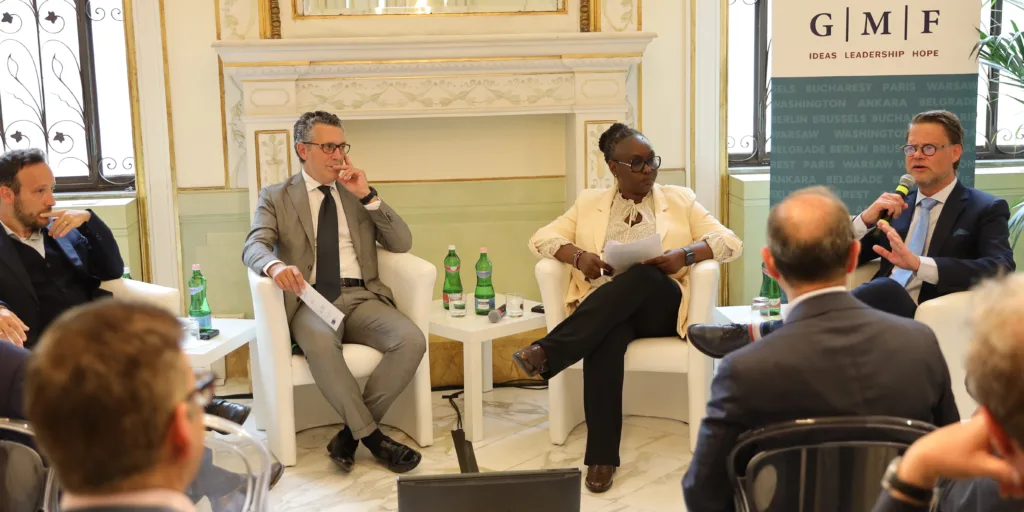For centuries, the Mediterranean Sea has been one of the world’s busiest waterways. Since the opening of the Suez Canal, it has served not only as the key transport corridor for shipping between Asia and Europe but has also become a global super data highway in the age of fiber optic communications.
The Mediterranean is an increasingly important hub for energy. New underwater power cables are connecting North Africa with the Southern European electricity grid. Extensive fossil fuel exploitation in the Eastern Mediterranean is in its early stages.
Like other regional seas, the Mediterranean is becoming an industrialized space of maritime infrastructures.
The 24th Mediterranean Strategy Group meeting of the German Marshall Fund took up the challenge to reflect on what this connectivity implies for the region under the theme of “connectivity.” 45 experts from 15 countries discussed the issue in Rome.

The changing Mediterranean connectivity
Starting from the history of the Mediterranean as a space of connectivity for cultures, religion, and trade, the first panel focused on the energy transition in the region. Panelists highlighted the struggles of going green due to the massive infrastructure investments required.
The second panel discussed the critical maritime infrastructure protection agenda. Panelists highlighted the vulnerabilities of infrastructures, the diffuse threats they face, and the substantial efforts for protection through mapping and surveillance that are underway, including by NATO.
The third panel turned to subsea data cables. I had the pleasure of discussing with representatives from Google, Sparkle, and the Carnegie Endowment the importance of data cables for our contemporary economies and societies. While there has been a lot of attention on subsea cables on the security agenda recently, building sufficient resilience continues to be a challenge.
Geopolitical Futures
The next panels turned to broader geopolitical questions and implications for the transatlantic policy agenda. Like other regions, the Mediterranean is also seen as under increasing geopolitical pressures from the United States-China rivalry. Many conflicts and disputes in the region—some of which, such as the Cyprus conflict, trace back decades—are becoming more intractable. The divide between the Northern and Southern Mediterranean countries is growing and new attempts to vitalize regional integration and identity building are needed.
While for some participants, these observations implied that only informal mini-lateral partnerships can improve relations and ensure development, others highlighted the need to revamp regional multilateral processes, including existing treaties such as the Barcelona Convention. Also the EU’s Global Gateway investment project could provide new opportunities.
The event demonstrated how important the critical maritime infrastructure protection agenda is globally. It’s time to thoroughly revisit its implications for regional seas around the world. The experience in the North Sea, where a lot of innovation is currently taking place, can be important in this regard.